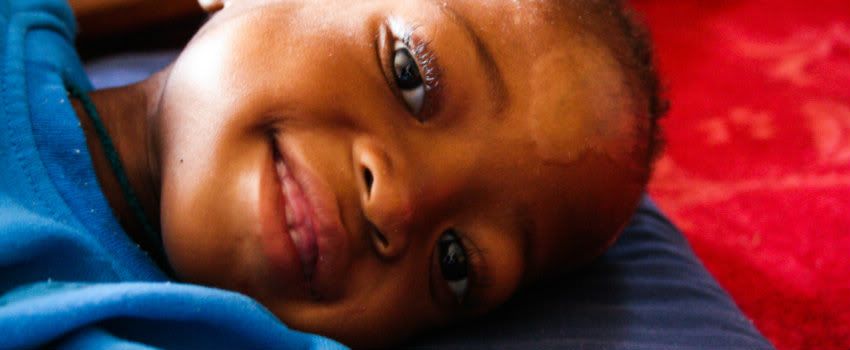You were my strength when I was weak
You were my voice when I couldn't speak
You were my eyes when I couldn't see
You saw the best there was in me
Lifted me up when I couldn't reach
You gave me faith 'cuz you believed
I'm everything I am
Because you loved me.
You were my voice when I couldn't speak
You were my eyes when I couldn't see
You saw the best there was in me
Lifted me up when I couldn't reach
You gave me faith 'cuz you believed
I'm everything I am
Because you loved me.
Celine Dion’s words blare into the main street of town out of the speakers of a grocery and household goods store we like to call “Big China.” I’m not sure which is more striking, the reality that nearly every store in town is owned and operated by the Chinese, or the music, an old U.S. hit sung by a Canadian. Dion adds to the slow bustle of domestic animals, the occasional car, and the Basotho lining the street, selling their small collections of imported goods: fruit, warm hats and socks, bargain jewelry, miscellaneous kitchen items. The origins of these items range from South Africa to London. Nowhere can a homemade craft or open air market be found, which most people consider the trademark of an African country. I admit I did…until I arrived three weeks ago, a Notre Dame student volunteering with TTL for two months. Even the Sesotho blankets, the signature item of Lesotho worn by nearly every Basotho, are imported from South Africa.
Why is this important? Surely it is trivial in the face of HIV, which is crippling Lesotho. After all, of the 1.9 million people of Lesotho, 25% are living with HIV, a disease that consequently has left 90% of those infected to also battle TB and has stolen the parents of an estimated 100,000 children. The government of Lesotho is attempting an aggressive fight against HIV through its provision of free testing and antiretroviral therapy to anyone who can access it. The issue, though, is that access continues to limit the reach of this program in a mountainous country populated predominantly by rural villages connected by dangerous roads that become ever more precarious with any kind of weather conditions.
I bring up the import situation because it illustrates a phenomenon: Lesotho effectively has no economy. Last week I spent an afternoon with Dr. Chris, a native of Zimbabwe and Baylor pediatric doctor who drives from Maseru for a week at the end of each month to provide care and ARVs (the drugs taken by HIV positive patients) to the people of Mokhotlong. It was an “ARV day,” which essentially involves driving out to a rural clinic in one of the villages of Mokhotlong, seeing dozens of patients, and outfitting each with a couple months’ worth of pills.
After explaining the system to me: what the government does, the HIV testing and bloodwork process, and how he decides which of the many ARVs on the market to prescribe to each person he sees, he looked at me. A sadness transformed his typically energetic and jocular demeanor. In response to a question I raised about the ability of malnourished people to respond effectively to ARVs, he said, “it’s not a problem. The drugs will still work. But the children are still going to be sick. They’re hungry. What we have to end is poverty.”
This is what I’ve spent my past couple weeks, and especially the last few days, thinking about. Paul Farmer cites a relevant Haitian proverb to make a comparison that illustrates precisely the point Dr. Chris raises: “Giving people medicine for TB and not giving them food is like washing your hands and drying them in the dirt.” A sustainable solution to disease commands the provision of the basic rights we take for granted: food, clean water, education, and healthcare.
But while a temporary good, simply giving people food every month is not sustainable. However, Lesotho’s economy, in its current state, gives aid organizations little choice. I’ve been wracking my brain for ways to revolutionize the local economy to provide the Basotho with heartier, more reliable incomes, but the fact of the matter is that no outsider can give Lesotho an economy. The Basotho people have been living off of imports and the dozens of various aid organizations for years. Subsistence living is their way of life, and now with imports and foreign aid they seem trapped amidst two very different systems driven by two often opposing ideologies.
Raised in a capitalistic society, I, like most Westerners, don’t understand their lack of innovation or motivation to make simple changes to improve their situation. But then I examine their traditional ways of doing things, as well as the ways in which aid has been given in the past, and I begin to see why they perceive their situation differently.
Every time I throw on my running shoes and pick up the road that leads out of town, I am reminded of what aid seems to mean to them. Without fail, after I attempt a “hello” or “how are you” in Sesotho, children ask me for “sweets” or “chin-chin” (money, in Sesotho) and herdsmen for my watch or gloves or shoes. This is what white people have done in the past, and over time it has become the rule. The Basotho expect it, but they cannot live on handouts forever.



2 comments:
Bigg Boss Contestants
Diwali 2016 Greetings
Easy Rangoli Designs for Diwali
Veterans Day 2016
Halloween Costumes Images 2016
Pumpkin Carving Patterns 2016
You can see the Status on WhatsApp Facebook, Pinterest, Instagram in different categories for all the peoples. With the help thankgiving menu list latest thanksgiving meme 3d chrismas photo new year animated photos of these social media sites, you can express your feeling on Thanksgiving day and can wish to all your besties and beloved one.
Post a Comment